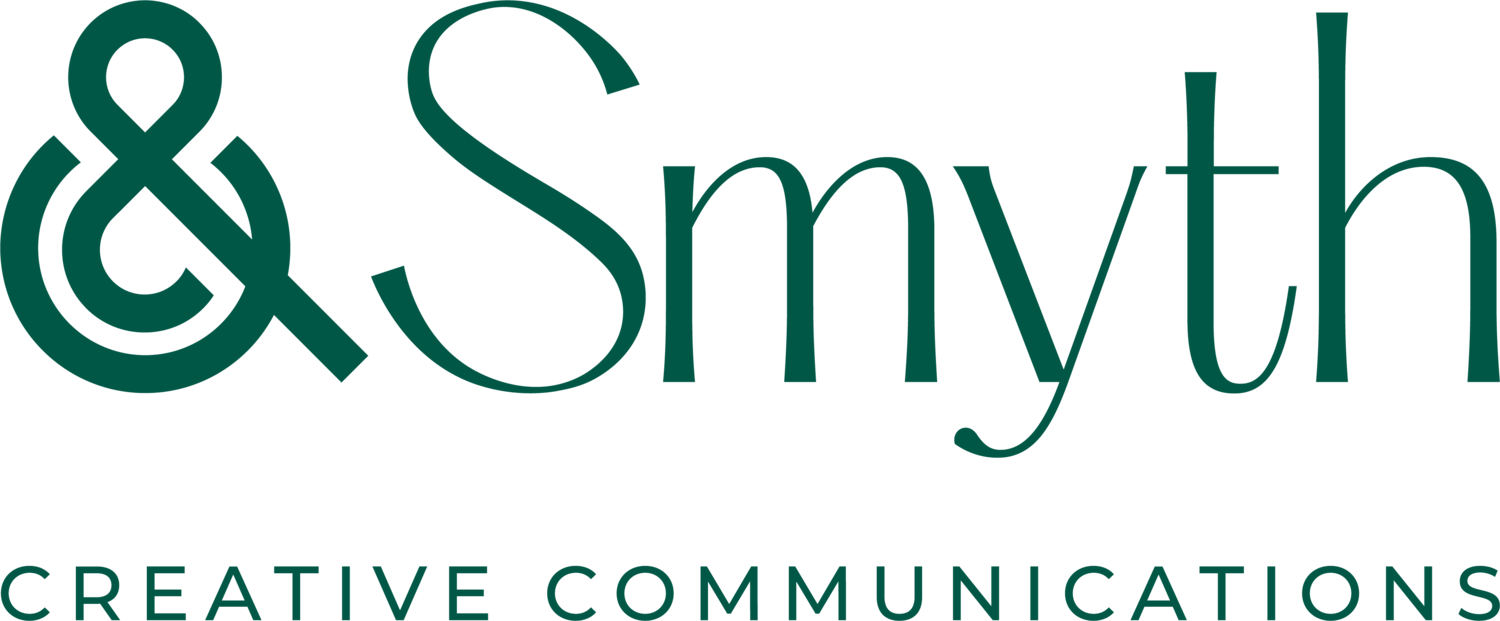10 key climate learnings for communications professionals
By Gemma Smyth, Managing Director, &Smyth Creative Communications
For the last few weeks our media and social media news feeds have been rightly dominated by the climate emergency as the COP 26 summit in Glasgow attracted global attention. It was encouraging to see our news outlets dedicate significant resources and time to reporting on the COP negotiations and proceedings, reflecting the public mood and a collective acknowledgment of the scale of the challenge ahead.
In the business community we are seeing a shift toward the realisation that inaction or climate delay is no longer an option as we need to achieve the most ambitious ever reduction in emissions in the shortest ever period of time. I have attended two events in recent weeks which have been focussed on the role of communications in addressing climate change, and what is clear is that we risk being complicit if we do not lean into the complexity of the issue.
The first event was a Climate Literacy Seminar hosted by the Guild of Agricultural Journalists of Ireland which aimed to assist journalists and communicators in navigating the topic of climate change. Opening the event, Independent Sustainability Advisor, Ali Sheridan delivered a powerful lecture setting out the reality of the challenge facing our world and the need for media and communicators to ask the hard questions as the business community seems to have moved from climate denial to climate delay.
Ali acknowledged that everyone is struggling to know the best course of action in this complex climate era but that a transformative mindset is needed in order to fundamentally change how we do everything before we run out of time. She said that “The position of being able to tell the story on this is a privileged position and it is going to be an increasingly important role. We need to start leaning into the complexity, getting braver and more courageous in asking the hard questions or we risk being complicit in our inaction.”
Last week’s annual PRII Conference also had a major focus on the role communications can play in tackling complex issues that require significant behavioural change from members of the public. In a fascinating interview, speaking from Geneva, Dr. Mike Ryan, Director of the WHO said that in his experience, leadership in times of emergency needs people who are trusted communicators and that progress can be made when scientists and communicators engage together.
Acknowledging that climate change presents both the biggest challenge and opportunity for the PR industry, I have distilled 10 key learnings for communications professionals which I have taken from the last few weeks.
1. It is no longer acceptable to run a business only as a profit-making exercise. Consumers, employees, investors and supply chain are demanding that business must also operate within safe planetary boundaries.
2. Climate delay is no longer an option and we don’t have time to wait for better science and technology. It is all of our responsibility to push for more ambition from ourselves and our clients in terms of the targets that can be achieved, ask better questions and seek more transparent explanations.
3. When there is an absence of trust, communications breaks down. We must make sure that any environmental claims made by the businesses we work with are backed up by science and independently audited and verified.
4. The oversimplification of information is not always the answer. Climate change is a complex issue which needs to be translated accurately and delivered effectively. By ‘dumbing down’ information people are not likely to take the action that is required of them.
5. Organisations must be prepared for mandatory and standardised reporting on climate targets and be gathering accurate and scientifically verified information. The EU is currently looking to introduce standardised reporting and countries like the UK are actively targeting ‘greenwashing’ by introducing initiatives such as the “Green Claims Code” which pushes for transparency and accuracy in climate related claims.
6. Give as much detail as possible and explain exactly what each targets is referring to. Some examples of this might be whether a company has taken into account the impact on the entire supply chain of its operations i.e. Scope 3 emissions? or if offsets are being used without addressing overall emission reductions?
7. Understand the timelines a company is operating to, what the target year for net zero is and if it is in line with what the science indicates is necessary.
8. Agree a common and understandable language. Currently there is a lot of confusion around terms such as Climate Neutral, Carbon Negative, Carbon Positive and Climate Positive. Agree the terminology to be used for the business, use it consistently and included explainers where necessary.
9. Push the companies you are working with to consider climate change at a Governance level and as central to running their business. Highlight the fact that we are seeing a trend towards Chief Sustainability Officers becoming Chief Executive Officers of organisations and encourage climate training at board level.
10. Remember you are a trusted communications advisor for your clients and it is your job to challenge insist on the detail, ask for the proof and the ensure it is backed up by science.
Speaking at the PRII conference, Jeremy Cohen of Blurred said “If you don’t believe in change, you won’t make an impact”. The simple fact is, we cannot continue to live the lives we lead if our climate is unstable so we have to believe that change is possible. And we must all consider the role we have to play in addressing climate change, before it is too late
.
To watch back the Guild of Agri Journalists Climate Literacy event visit and access more resources visit www.agriguild.ie/news/36-climate-literacy-event.
Members of the PRII can watch this year’s conference back on www.prii.ie.




